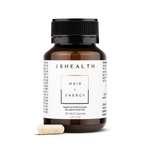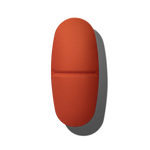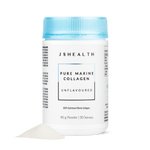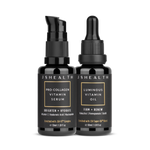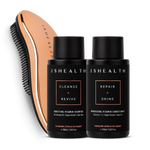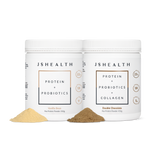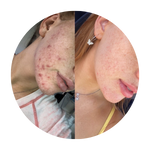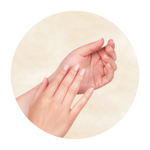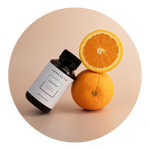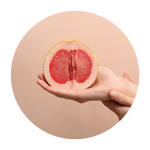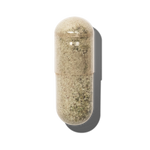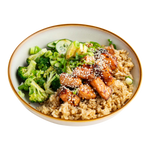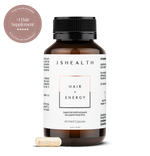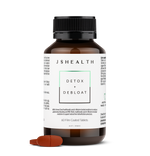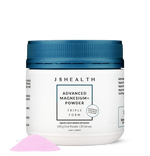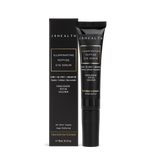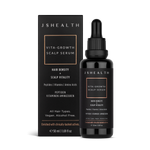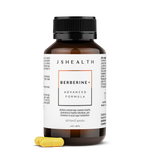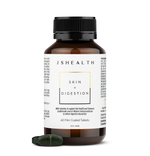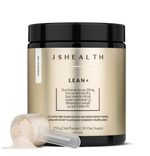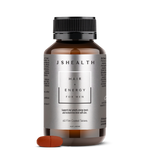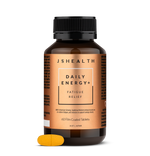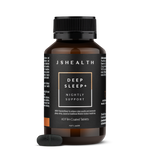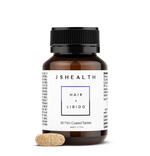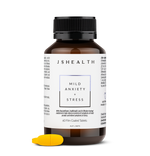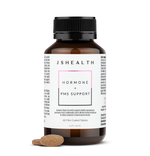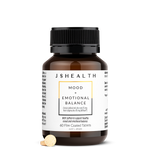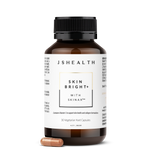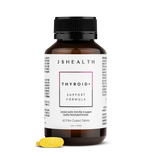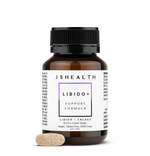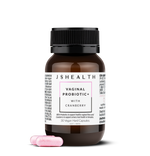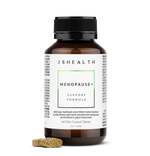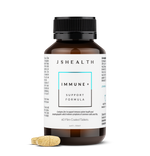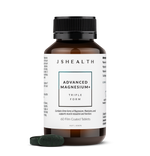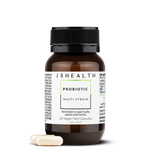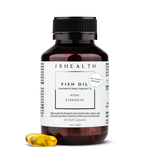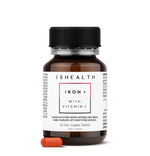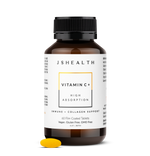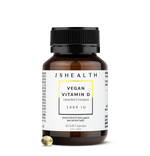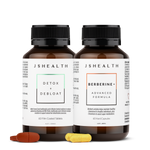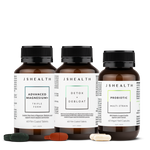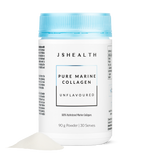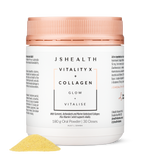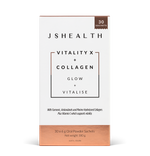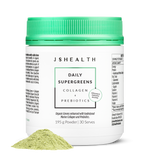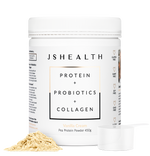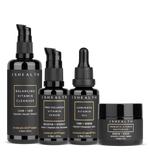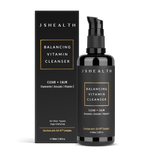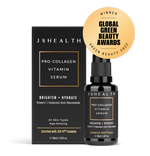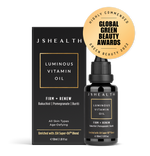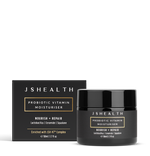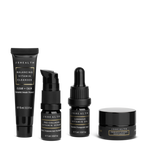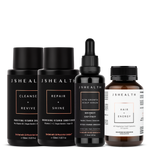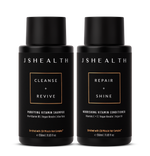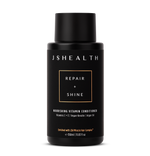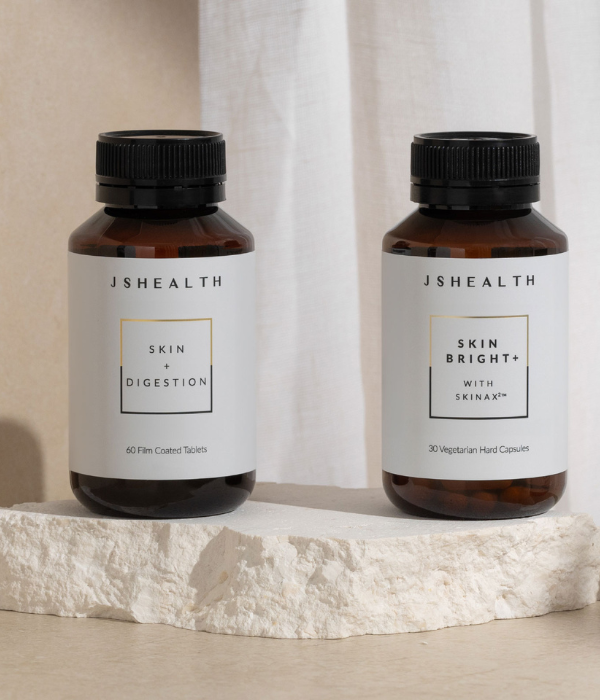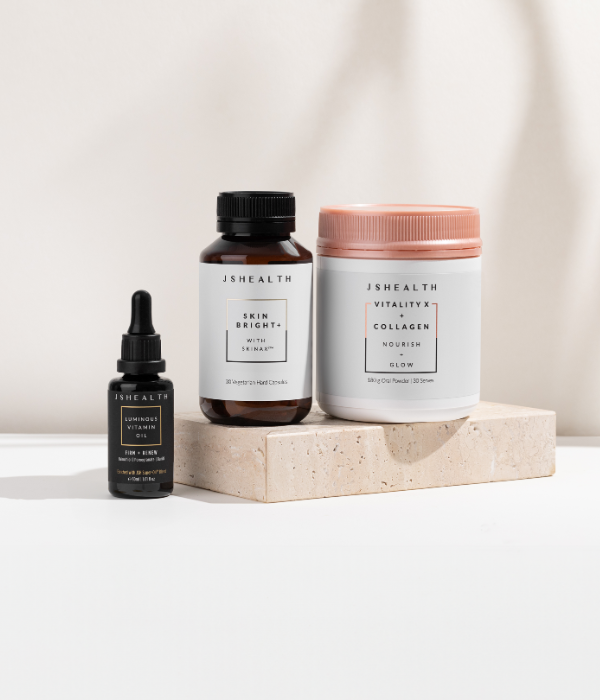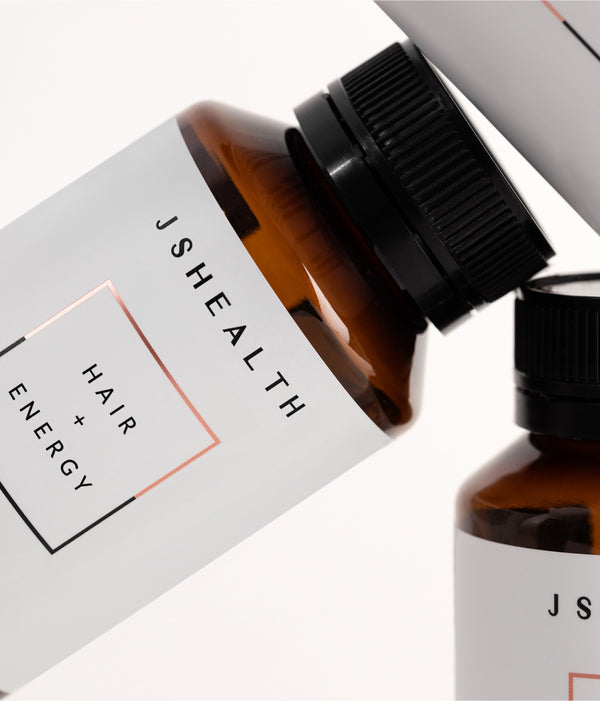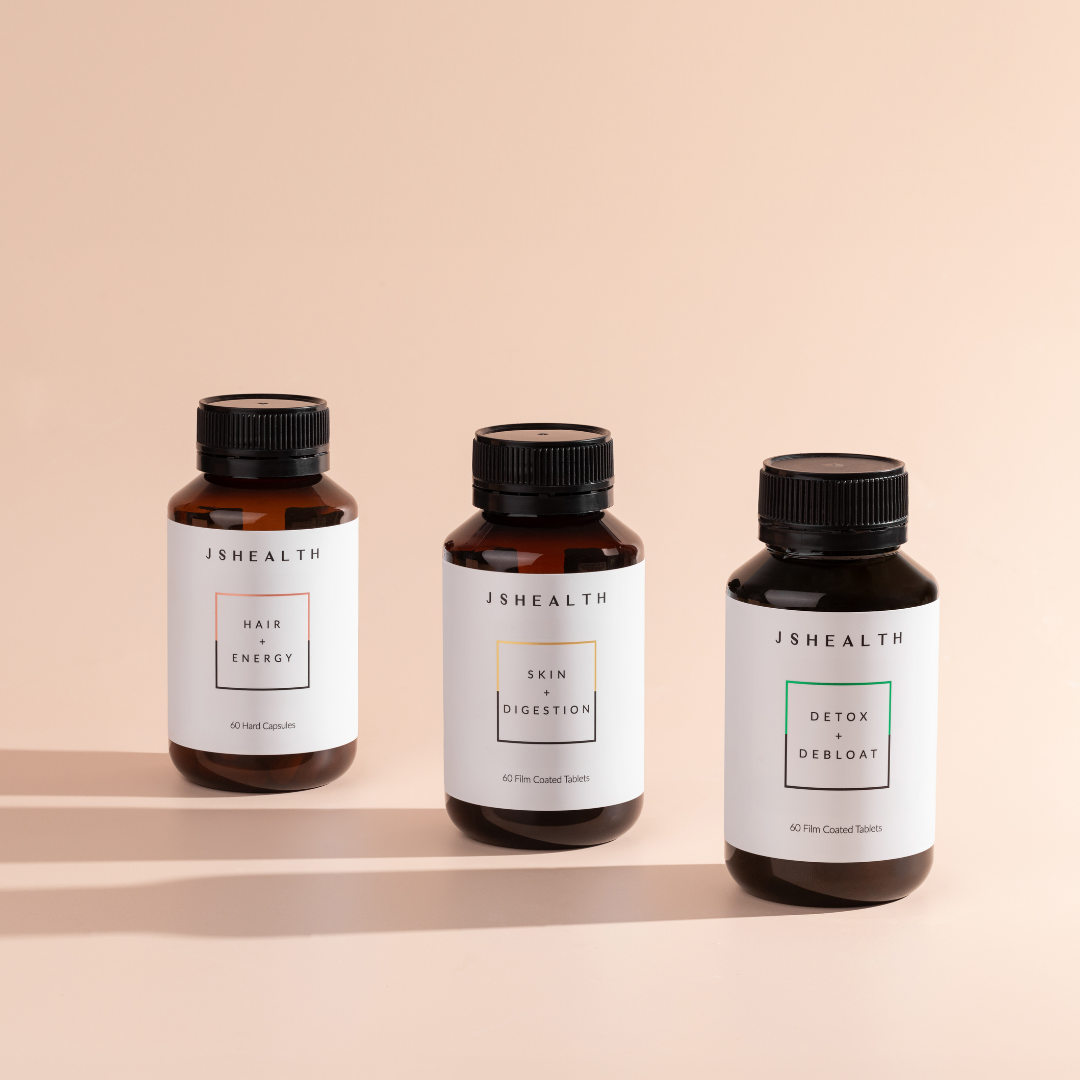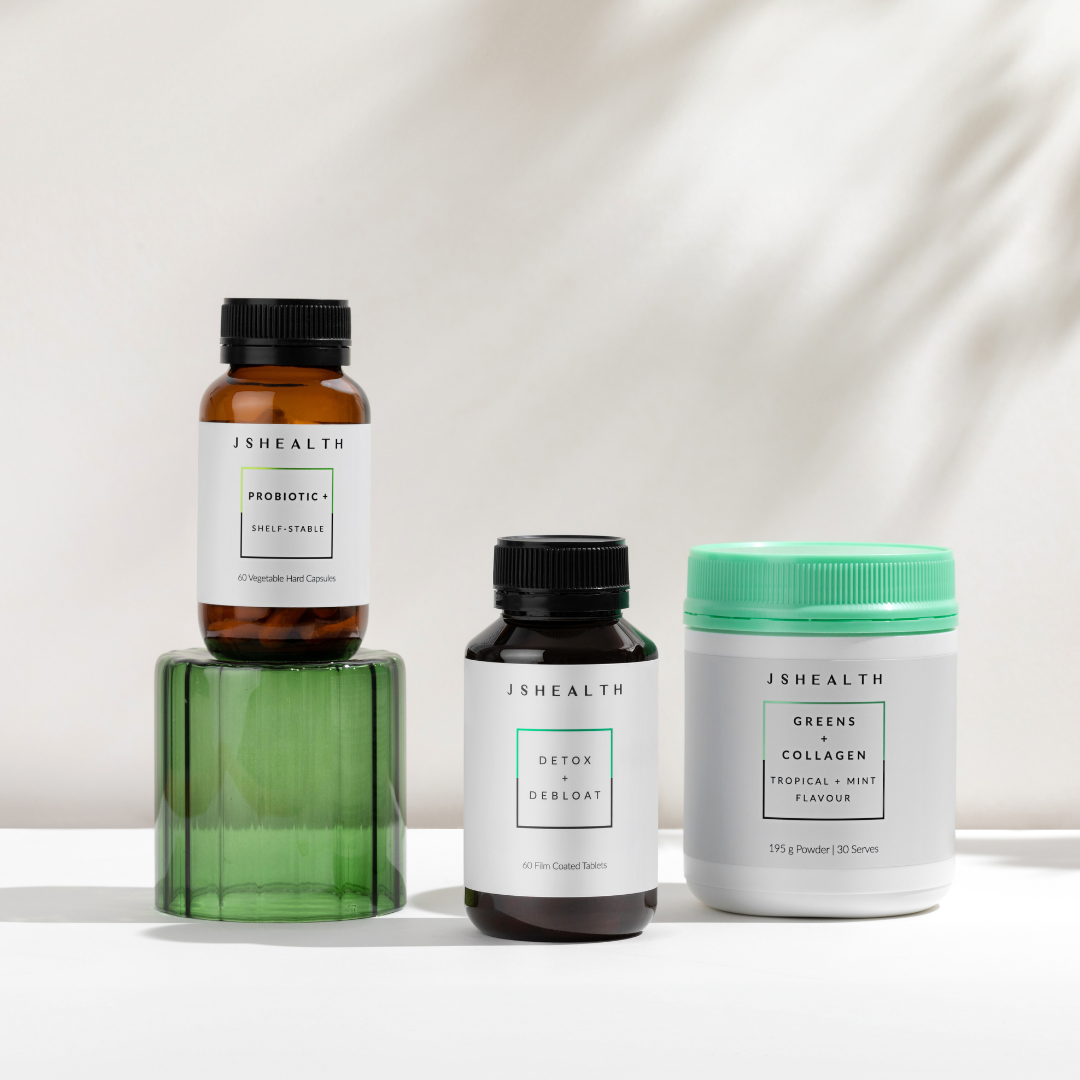The Benefits of Milk Thistle for Women's Health
In the world of health and wellness, you may have heard about a wonderful ingredient called Milk Thistle.
This spiky, purple-flowered plant is now globally recognised for its therapeutic potential. You really can’t overstate the empowering role that nature plays in supporting our health.
The Milk Thistle, steeped in centuries of usage, is taking the natural health community by storm, and for good reason. Offering benefits that range from promoting liver health to maintaining bone health, it's become a well-loved fixture in the wellness routines of many.
Let's dive in and discover why this humble herb is gaining such popularity among women around the world.
What Is Milk Thistle, and Where Does It Come From?
Milk Thistle, also known as Holy Thistle, Mary Thistle or by its scientific name, Silybum Marianum, is a herbaceous plant native to the Mediterranean regions. However, early colonists introduced the plant to North America, and it’s since spread throughout the eastern United States and California.
Its popularity has led to its spreading through other continents, and it can now be found in South America, Africa, Asia and Australia.
Milk Thistle belongs to the Asteraceae family, including familiar plants like sunflowers, dahlias, chicory, lettuce and daisies. For centuries, it has been used as a herbal remedy for a variety of ailments, particularly liver conditions. In modern times, we understand the benefits of Milk Thistle from a much deeper perspective.
How Does Milk Thistle Work in Our Bodies?
The magic of Milk Thistle lies in its seeds, which contain an active ingredient called silymarin. This potent mixture is actually composed of several substances, the two most notable being silybin and silibinin.
These substances are recognized for their antioxidant properties and the ability to support overall wellbeing at various levels. On the molecular level, silymarin acts as a potent antioxidant. It supports the body’s natural fight against harmful free radicals that cause oxidative stress in our bodies.
Furthermore, silymarin shows affinity towards our liver cells, which can support overall liver health. It's believed that silymarin binds to the outer layer of liver cells, forming a sort of protective shield that prevents toxins from infiltrating the cells. This unique action makes milk thistle a complementary addition to any dietary regimen aimed at supporting liver function and health.
While it is true that silymarin's affinity for liver cells has garnered much attention, it's equally important to recognize that its benefits are not confined to the liver alone. For instance, its antioxidant properties can have widespread benefits for our overall health. In addition, some research suggests that silymarin might maintain balanced oestrogen levels, which could help support overall women's health.
This botanical wonder is a powerful remedy that's been trusted for centuries.
Whether it's brewed into a Milk Thistle tea, ground into a powder for Milk Thistle supplements, or extracted for its beneficial silymarin content, this Mediterranean marvel brings to the table a wealth of benefits that women across the globe are starting to recognize and embrace.
What Are the Main Benefits of Milk Thistle for Women's Health?
The real beauty of Milk Thistle lies in its multifaceted approach, addressing several aspects of health all-in-one. With its radiant purple flowers and fierce thorny exterior, it is a testament to nature's inherent wisdom, offering a holistic approach to wellness that is both gentle and effective.
Let’s delve into its benefits…
Liver Health
Milk Thistle is a superstar when it comes to protecting the liver. The main reason is that the flavonoid silymarin supports the liver’s natural safeguards against harmful substances while maintaining cell regeneration.
By maintaining the balance of liver enzymes, which perform the essential task of detoxification, Milk Thistle can assist the liver in its most important functions. The protective properties of Milk Thistle are particularly beneficial for those exposed to toxins regularly, such as alcohol or pollution.
Gallbladder Health
Given the gallbladder's instrumental role in digestion, maintaining its health is crucial. This small organ, tucked under the liver, stores bile, a fluid that helps digest fats.
Milk Thistle, with its bile production-supporting properties, maintains optimal gallbladder function. Ensuring an effective flow of bile supports digestion and can help soothe symptoms, such as bloating and abdominal discomfort.
Kidney Health
The kidneys, just like the liver, play a critical role in detoxification. These organs are responsible for removing waste products from the body, a task Milk Thistle may support.
Preliminary research suggests that Milk Thistle can help support the kidneys in their fight against damage, ensuring these important detoxification organs remain in good shape.
Weight Loss
The use of Milk Thistle in supporting weight loss isn't a new concept. By supporting liver function, it helps to maintain metabolism and fat breakdown, contributing to healthy weight management.
While it's no magic pill, it can support a weight loss regimen that includes regular exercise and a balanced diet. Remember, the goal is sustainable, healthy weight loss, not rapid, unhealthy weight shedding.
Brain Health
The brain, the control centre of the body, also welcomes Milk Thistle's positive effects. Research indicates that Milk Thistle has various neuroprotective abilities that may help support the brain’s natural fight against damage. These actions can support overall brain health and cognitive function.
Bone Health
As we age, maintaining bone health becomes crucial. This is especially true for postmenopausal women. Milk Thistle may be beneficial in this regard, with early research suggesting it could help maintain bone density, thus fostering strong bones.
Digestive Health
Beyond the liver and gallbladder, Milk Thistle's support for digestive health continues to shine. By supporting the production and flow of bile, an essential component in the digestive process, Milk Thistle can maintain the absorption and digestion of nutrients. This can be particularly beneficial for those experiencing digestive discomfort or disorders.
Immunity Support
In a world where immunity support has become a top priority for many, Milk Thistle's potential role in maintaining the immune system stands out. Silymarin, the active ingredient in Milk Thistle, has been found to support the immune response, providing another layer of defence against illness.
Skin Health
Beauty enthusiasts may find a friend in Milk Thistle. It can help keep your skin looking youthful and radiant. Additionally, it may calm the effects of some skin conditions due to its tension-soothing properties.
Blood Sugar Levels
Maintaining balanced blood sugar levels is a crucial part of overall health. Interestingly, Milk Thistle has been studied for its potential role in supporting the body in naturally managing blood sugar levels.
Heart Health
Heart health is yet another area where milk thistle may prove beneficial. Some studies suggest it can help maintain healthy cholesterol levels. By helping support lower LDL (bad) cholesterol and maintain HDL (good) cholesterol, Milk Thistle further cements its place in supporting overall health.
Overall Wellness
Finally, the overall wellness benefits of Milk Thistle are clear. It boosts general wellbeing by assisting with weight management, immunity and supporting numerous organ systems. The use of Milk Thistle, coupled with a balanced diet and lifestyle, could be a fantastic approach to nurturing your health from within.
Are There Any Side Effects of Milk Thistle?
As we tread on the path to wellness, it's crucial to remember that while milk thistle holds potential benefits, it's not without potential side effects. Some individuals may experience minor digestive disturbances like bloating or diarrhoea. In most cases, these symptoms subside as the body adjusts to the supplement.
The plant belongs to the Asteraceae family, which also includes ragweed, marigold and chrysanthemums. If you're allergic to any of these, you might also have a reaction to milk thistle.
Symptoms can include skin rashes and, in severe cases, difficulty breathing. Always seek immediate medical advice if you suspect an allergic reaction.
When it comes to dosage, "more" is not always "better." High doses of Milk Thistle may lead to unwanted effects.
To ensure a safe experience, it's always recommended to consult with your healthcare provider. They can guide you on the right dosage based on your overall health, lifestyle and medication regimen.
How Can You Incorporate Milk Thistle in Your Daily Routine?
A balanced life is achieved by integrating wellness habits into your daily routine, and incorporating Milk Thistle can be as easy as sipping your morning tea. You can find milk thistle extract in supplements, teas and seeds.
Supplements, often available in capsule form, are popular and provide a concentrated dose of silymarin. Milk Thistle tea can be a soothing addition to your routine if you're a tea lover. The seeds of the plant can be crushed and soaked in hot water for a comforting brew.
Ground Milk Thistle seeds can be sprinkled over your favourite smoothie, salad, or yoghourt, adding a mild, nutty flavour. It's a natural and flexible way to incorporate this potent plant into your diet.
What Do Healthcare Providers and Clinical Trials Suggest About Milk Thistle?
The wellness world has seen randomised clinical trials using placebos to evaluate the effect of silymarin on liver health, weight management and more. While findings are promising, more extensive and long-term studies are required to confirm these benefits and fully understand potential interactions with other medications.
Healthcare providers generally view Milk Thistle as a complementary component of an overall health regimen. It's seen as a dietary addition that can support specific aspects of health but should not replace a balanced diet, exercise, or prescribed medication.
As always, seek their advice before introducing any new supplement into your routine.
The Bottom Line
The journey to understanding Milk Thistle and its benefits for women's health underscores the importance of this potent plant. It's not just about the silymarin, the flavonoids, or the antioxidant properties. It's about how these elements, when working together, can contribute to your overall health.
Yet, while Milk Thistle holds potential, we must remember that wellness is not defined by a single supplement or practice. It's the result of a balanced lifestyle that nurtures our physical, mental and emotional wellbeing.
Remember, every person's health journey is unique. What works well for one may not work for another. That's why it's vital to seek professional medical advice, listen to your body and choose what feels right for you.
Let's embrace balance, moderation and wellness from all angles.
Sources:
Milk Thistle Market Size, Growth, Trends & Forecast 2033 | Future Market Insights
“Silymarin”, a Promising Pharmacological Agent for Treatment of Diseases | Pubmed
Free Radicals, Antioxidants in Disease and Health | PMC
Silymarin as Supportive Treatment in Liver Diseases: A Narrative Review | PMC
Milk Thistle - Drugs and Lactation Database (LactMed®) | NCBI Bookshelf
Silymarin and Diabetic Nephropathy | PMC
Benefits of Milk Thistle for Weight Loss | Livestrong
Milk Thistle: A Future Potential Anti-Osteoporotic and Fracture Healing Agent | PMC
Immunostimulatory Effect of Silybum Marianum (Milk Thistle) Extract | NCBI Bookshelf
Skin Protective Activity of Silymarin and its Flavonolignans | PMC
